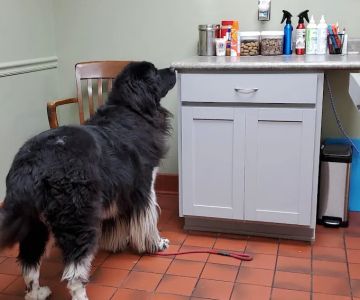Signs of Arthritis in Older Dogs: What to Look For
- Overview of Arthritis in Dogs
- Signs of Arthritis in Older Dogs
- Causes and Risk Factors for Arthritis
- Treatment Options for Arthritis in Dogs
- Preventive Measures and Care
Overview of Arthritis in Dogs
Arthritis is a painful condition that affects many older dogs, often causing inflammation, stiffness, and discomfort in the joints. As dogs age, their joints experience wear and tear, which can lead to arthritis. This condition can significantly impact a dog's quality of life, making it harder for them to engage in activities they once enjoyed. Recognizing the early signs of arthritis is essential for helping your dog manage the condition and maintain a good quality of life.
Signs of Arthritis in Older Dogs
Arthritis can be tricky to detect in its early stages because dogs often try to hide their discomfort. However, there are several signs to watch for that may indicate your older dog is suffering from arthritis:
- Stiffness and difficulty moving: One of the most common signs of arthritis is difficulty in movement. Your dog may appear stiff when getting up or lying down, or may struggle to jump onto the couch or into the car.
- Limping or favoring a limb: If your dog is limping, favoring one leg, or walking with a noticeable limp, it may be a result of joint pain from arthritis.
- Reduced activity levels: Arthritis can make movement painful for your dog, which may result in decreased activity levels. If your dog is less interested in going for walks or playing, arthritis may be to blame.
- Changes in behavior: A dog in pain may exhibit signs of irritability or be more withdrawn than usual. If your dog is more sensitive to touch, especially around the joints, it could indicate arthritis.
- Swelling or warmth around joints: Swollen or warm joints are a common symptom of arthritis. If you notice swelling, it’s important to get your dog checked by a vet.
If you observe any of these symptoms in your dog, it’s crucial to consult your veterinarian as soon as possible. Early detection and intervention can help prevent further joint damage and improve your dog's comfort.
Causes and Risk Factors for Arthritis
Arthritis in dogs is typically caused by the gradual wear and tear of the joints, but several factors can increase the risk of developing arthritis:
- Age: Older dogs are more prone to arthritis due to the natural degeneration of joint tissues over time.
- Obesity: Extra weight puts additional stress on the joints, increasing the likelihood of arthritis and exacerbating its effects.
- Injury or trauma: Previous joint injuries, such as fractures or ligament tears, can lead to arthritis later in life.
- Genetics: Certain dog breeds, particularly large breeds like German Shepherds, Labrador Retrievers, and Golden Retrievers, are genetically predisposed to joint issues, including arthritis.
- Lack of exercise: Dogs that are not sufficiently exercised are at a higher risk of joint stiffness and arthritis as they age.
Understanding these risk factors can help you take proactive steps to protect your dog from arthritis or manage the condition more effectively if it arises.
Treatment Options for Arthritis in Dogs
While arthritis in dogs cannot be cured, there are many treatment options available to manage the condition and improve your dog’s quality of life. Depending on the severity of arthritis, your veterinarian may recommend one or more of the following:
- Medications: Non-steroidal anti-inflammatory drugs (NSAIDs) are commonly prescribed to manage pain and inflammation associated with arthritis.
- Joint supplements: Supplements such as glucosamine and chondroitin can help support cartilage health and improve joint function.
- Physical therapy: Regular physical therapy, including exercises to strengthen muscles and improve mobility, can be highly beneficial for arthritic dogs.
- Surgery: In severe cases, surgical options such as joint replacement or arthroscopy may be considered, especially for large breeds or dogs with advanced arthritis.
- Weight management: Keeping your dog at a healthy weight reduces stress on the joints and can greatly improve their comfort and mobility.
If you suspect that your dog has arthritis, it's best to schedule a consultation at Hidden Brook Veterinary, where we provide customized treatment plans that focus on relieving your dog's pain and improving their joint health.
Preventive Measures and Care
While you can’t prevent arthritis entirely, there are steps you can take to reduce your dog's risk and manage their joint health:
- Maintain a healthy weight: Keeping your dog at a healthy weight will alleviate unnecessary strain on their joints.
- Regular exercise: Moderate, consistent exercise helps keep your dog’s joints flexible and muscles strong, reducing the risk of arthritis.
- Provide a balanced diet: A nutritious diet supports overall joint health, and certain supplements may help protect the cartilage in the joints.
- Monitor joint health: Regular veterinary checkups can help detect early signs of arthritis, allowing for timely intervention.
By taking these preventive measures, you can help ensure that your dog enjoys an active, comfortable life even as they age. For additional guidance and treatment options, visit Hidden Brook Veterinary, where we’re dedicated to helping your dog stay healthy and happy throughout their life.











